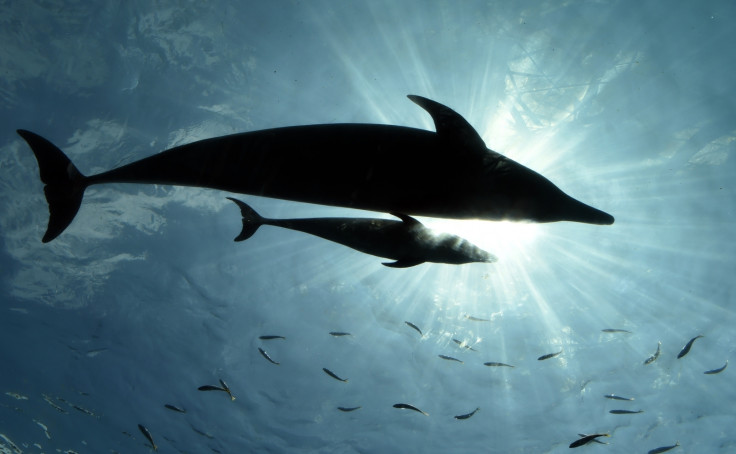England's first family of bottlenose dolphins takes residence off the coast of Cornwall
Researchers have confirmed that the pod of 28 dolphins is native to the area.
A pod of dolphins has decided to make England their home. Researchers have identified a group of 28 bottlenoses that they believe are native to the waters off the coast of Cornwall.
Scientists have confirmed that the group are the first permanent resident population of the species that live in English waters.
After analysing almost 4,000 sightings and photographs from the southwest between 2007 and 2016, Rebecca Dudley of the University of Plymouth, was able to identify 98 individual bottlenose dolphins and narrow down a distinct group of 28 that were resident throughout the year.
While keeping to waters around Mount's Bay and St Ives Bay in west Cornwall, the pod was also spotted off Devon and Dorset.
"This research is proof that we have a resident population and is incredibly exciting," said Ruth Williams, Marine Conservation Manager at Cornwall Wildlife Trust. "The future of these iconic animals is in our hands and we need to make sure the few we currently have in the southwest are given the protection not just to survive, but to thrive."
Cornwall is known for its dolphin population, but up until now, it was thought that the mammals were simply migrating from the southern Irish Sea to spend the winters in warmer waters as they made their way to the Bay of Biscay.

Two other resident pods in Britain can be spotted in the Moray Firth, off the coast of Scotland, and in Cardigan Bay in Wales.
Like the homes of its British neighbours, Cornwall's waters — where the newly-identified English group live — is also expected to be granted Marine Protection Area (MPA) status to protect the rare animals.
"Bottlenose dolphins in the southwest face several threats, including pollution from plastics and chemicals, injury by fishing nets, and disturbance from recreational activities," a spokesman for Cornwall Wildlife Trust told The Daily Mail.
"Highlighting the existence of a resident population is the first step in seeking specific protection for these animals, with the next step being to collect more evidence on their movements and behaviour and strengthen the case for the importance of this area."
Dr Jean-Luc Solandt, Principal Specialist, Marine Protected Areas, for the Marine Conservation Society, explained that bespoke protection needs to be created with strict rules associated with entanglement, by-catch and noise restrictions.
"Many areas of the sea are hotspots for dolphins and whales because of the presence of large amounts of prey either coming from or residing in deep waters," he explained, according to The Telegraph.
"This makes them stay in the areas of such favourable food sources for considerable amounts of time, making an area-based protection mechanism such as a Marine Protection Area really effective."























